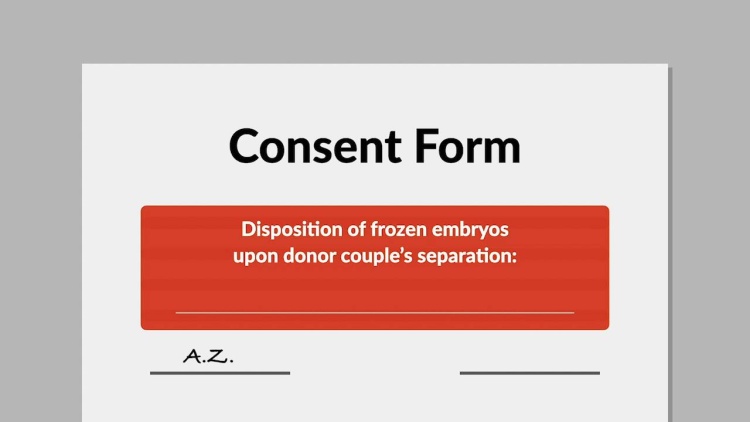A.Z. v. B.Z.
Massachusetts Supreme Judicial Court
725 N.E.2d 1051 (2000)

- Written by Denise McGimsey, JD
Facts
A man, A.Z. (plaintiff), and woman, B.Z. (defendant), married in 1977. Confronted with difficulty having children, the couple underwent in vitro fertilization a number of times between 1988 and 1991. B.Z. bore twin daughters in 1992. The couple’s 1991 in vitro procedure produced more preembryos than were necessary so the additional preembryos were frozen and stored at the fertility clinic. With each in vitro procedure, the couple signed a consent form provided by the clinic that disclosed information about in vitro and asked the couple to indicate their preferences for disposing of additional preembryos under various contingencies. One such contingency was “should we become separated.” In each consent form that the couple completed, A.Z. signed a blank form without indicating how the preembryos should be disposed. B.Z. then filled in the disposition information before signing. In each case she indicated that, in the event of the couple’s separation, the preembryos were to be transferred to her custody for implantation. The couple eventually separated and A.Z. filed for divorce, in part because B.Z. attempted to become pregnant using the frozen preembryos without telling her husband. In the divorce, B.Z. sought to take custody of the preembryos pursuant to the consent form. A.Z. requested a permanent injunction against the transfer. The probate court granted the injunction, concluding that the husband’s interest in avoiding procreation outweighed the wife’s interest in having more children. B.Z. appealed.
Rule of Law
Issue
Holding and Reasoning (Cowin, J.)
What to do next…
Here's why 907,000 law students have relied on our case briefs:
- Written by law professors and practitioners, not other law students. 47,100 briefs, keyed to 996 casebooks. Top-notch customer support.
- The right amount of information, includes the facts, issues, rule of law, holding and reasoning, and any concurrences and dissents.
- Access in your classes, works on your mobile and tablet. Massive library of related video lessons and high quality multiple-choice questions.
- Easy to use, uniform format for every case brief. Written in plain English, not in legalese. Our briefs summarize and simplify; they don’t just repeat the court’s language.





